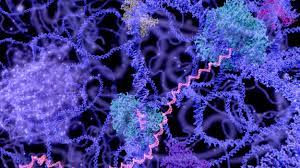This is possible because cancer cells have unique proteins on their surface, and the mRNA vaccines can be programmed for those exact proteins to generate antibodies.
This way, doctors hope to prepare the patient’s immune system to recognise the cancer and kill it.
Pharmaceutical and biotech companies already see the potential in these new treatments. For example, BioNTech is testing mRNA vaccines aimed at overexpressed but unmutated proteins. Moderna is similarly building mRNA therapies that instruct the immune system to recognise mutations made by cancerous proteins in a gene called KRAS.
Significant advancement is also going on HIV treatments, even as researchers at Scripps University in California have developed a preliminary vaccine that shows promise for preventing HIV infections.
The vaccine’s goal is to stimulate the immune system to produce “broadly neutralising antibodies,” which are meant to attach to the HIV spike protein that enters the cells and neutralise them.
source: Medicalworldnigeria

 In a related development, scientists are hoping that the mRNA vaccine technology could be used to cure cancer and HIV. The mRNA vaccines are believed to address any infectious disease or cancer target that would require an immune response against a protein antigen.
In a related development, scientists are hoping that the mRNA vaccine technology could be used to cure cancer and HIV. The mRNA vaccines are believed to address any infectious disease or cancer target that would require an immune response against a protein antigen.




